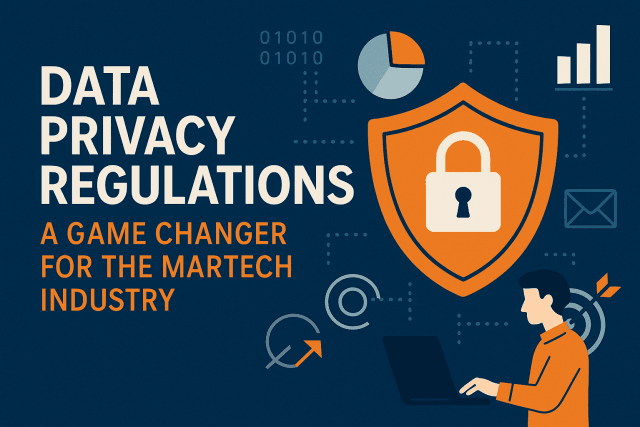In an age where data is often referred to as the new oil, the rise of data privacy regulations represents a seismic shift in the MarTech (Marketing Technology) landscape. The introduction of laws like the GDPR (General Data Protection Regulation) in Europe and the CCPA (California Consumer Privacy Act) in the United States has not only redefined how organizations collect, store, and use consumer data but also transformed the fundamental strategies of marketing technology providers. As data privacy becomes a major concern for consumers and regulators alike, understanding its implications for the MarTech industry is crucial.
The Impact of Data Privacy Regulations
Enhanced Consumer Trust
Data privacy regulations are designed to give consumers more control over their personal information. By establishing clear guidelines for data handling, organizations can build greater trust with their customers. For MarTech companies, this means shifting their focus from invasive data collection tactics to transparent, user-friendly practices. Companies that prioritize data protection are likely to see improved brand loyalty and customer retention as they align with consumer expectations for privacy.
Shift Toward Consent-Based Marketing
One of the most significant changes brought about by data privacy regulations is the emphasis on obtaining explicit consent from users before collecting their data. This has led to a robust debate about the future of user consent, with many companies now implementing double opt-in strategies and simplified privacy notices. For MarTech professionals, this means adapting their methodologies to ensure consent management is a core aspect of their operations, which can ultimately lead to higher-quality, more engaged leads.
Reevaluation of Data Management Strategies
With stricter regulations on data collection and processing, MarTech companies are compelled to reevaluate their data management strategies. Organizations must now adopt data minimization principles, collecting only the information necessary for their functions. This shift not only promotes compliance but also results in cleaner, more accurate datasets. Marketers must invest in technologies that help manage consent, anonymize data, and implement rigorous data governance frameworks.
Innovation in Data Analytics
Despite the challenges posed by data privacy regulations, there’s a silver lining: the push for more innovative data analytics solutions. Companies are being encouraged to explore alternative data sources and analytics models. For instance, cohort-based analysis and predictive modeling have gained traction as companies look to glean insights while remaining compliant. Additionally, the emphasis on first-party data is prompting organizations to invest more in customer relationships, enhancing personalized marketing efforts without infringing on privacy.
Legal Implications and Compliance Challenges
For MarTech companies, navigating the complex landscape of data privacy regulations can be daunting. Non-compliance can result in hefty fines and reputational damage. Therefore, many organizations are prioritizing legal compliance as a pillar of their marketing strategies. This involves adopting comprehensive data protection policies, conducting regular audits, and training teams on compliant data handling practices.
Moreover, the international nature of digital marketing adds another layer of complexity, requiring businesses to understand and comply with regulations across different jurisdictions. This has led to greater collaboration between legal teams and MarTech professionals to align on best practices and ensure ongoing compliance.
Building a Privacy-First Future
As data privacy regulations continue to evolve, MarTech companies have the opportunity to embrace a privacy-first approach. This involves integrating privacy considerations into their product development cycles and marketing strategies from the outset. The trend towards privacy-centric marketing isn’t just about compliance; it’s about creating a culture of respect for consumer data that could redefine the sector.
Conclusion
The emergence of stringent data privacy regulations is undeniably a game changer for the MarTech industry. By fostering consumer trust, encouraging consent-based marketing, prompting innovative data management strategies, and necessitating legal compliance, these regulations are reshaping the way brands approach their marketing efforts. As we advance, those who adapt to this new reality of responsible and respectful data use will not only survive but thrive in the rapidly changing MarTech landscape. Adopting a proactive stance on data privacy will be a critical differentiator in the quest for sustainable growth and customer loyalty in the digital age.









